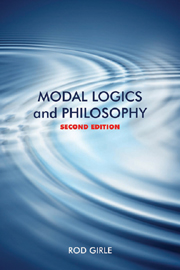14 - Conditionals and reliability
from Part 2 - Applications
Summary
Introduction
Conditionals invite us to use our imagination and to consider possibilities. The antecedent “If A” turns us towards hypothetical circumstances and prepares us to consider what follows from them. The consequent “then C” expresses the claim that C follows from A or is implied by A. When we know that A is false, contrary to fact or counterfactual, then the speculations invite contention. There is a “what if ” dimension to conditionals. Public figures are often asked conditional questions such as: what would you do if A? They will often decline to answer such questions. The element of speculation raises all sorts of difficulties in giving answers. These difficulties are not just for public figures. Logicians and philosophers face the same questions about speculation and possibility when discussing conditionals and what makes for their being true or false.
If we set aside conditional or hypothetical questions for the moment, then the key question about conditional statements is what makes a conditional true. One quite standard answer has been that a conditional is true when either the antecedent is false or the consequent is true. This is the material conditional interpretation. This is problematic for several reasons, not least because it makes all counterfactual conditionals true, and all conditionals with true consequents true.
- Type
- Chapter
- Information
- Modal Logics and Philosophy , pp. 207 - 225Publisher: Acumen PublishingPrint publication year: 2009



